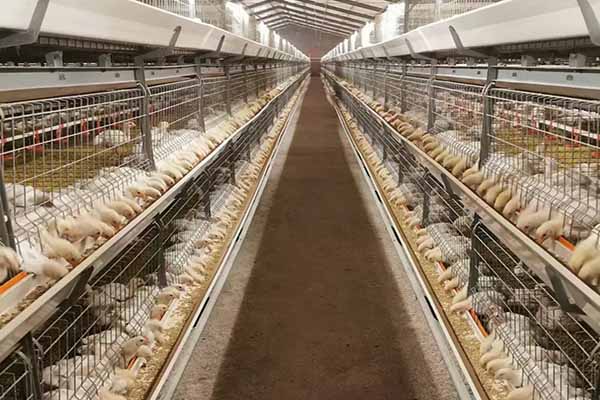How to Start a Free Range Chicken Farm in New Zealand
Time : 2025-07-03
Starting a free range chicken farm in New Zealand can be a rewarding endeavor, offering both financial and ethical benefits. Free range farming is becoming increasingly popular due to its healthier and more environmentally friendly practices. In this comprehensive guide, we will explore the steps to start a free range chicken farm in New Zealand, from planning and preparation to equipment and management.
Step 1: Research and Planning
Before diving into the business, thorough research and planning are essential. Here’s what you need to consider:
Market Analysis
Understand the local market demand for free range chicken products. Research local consumers’ preferences, competitors, and potential market segments.
Legal Requirements
Familiarize yourself with the legal requirements for free range farming in New Zealand. This includes understanding the Free Range Egg and Free Range Chicken Codes of Practice, which are set by the Free Range Egg and Free Range Chicken Campaign.
Location and Land
Choose a suitable location with access to fresh water, good drainage, and a predator-free environment. The land should be suitable for raising chickens and should comply with environmental regulations.
Step 2: Business Planning
Develop a detailed business plan that outlines your goals, marketing strategy, financial projections, and operational plan. Here are the key components:
Business Structure
Decide on the legal structure of your business, such as sole proprietorship, partnership, or company.
Budget
Create a comprehensive budget that includes costs for land, buildings, equipment, feed, labor, and marketing.
Marketing Strategy
Develop a marketing plan to reach your target market, including online and offline channels.
Step 3: Equipment and Infrastructure
Investing in the right equipment and infrastructure is crucial for the success of your free range chicken farm. Here’s what you’ll need:
Chicken Coops and Run
Build or purchase chicken coops and runs that provide adequate space for the chickens and protect them from predators and harsh weather conditions.
Feeding Equipment
Install automatic feeders to ensure the chickens receive a consistent diet. Use high-quality, free-range chicken feed.
Watering Systems
Implement a reliable watering system that provides clean, fresh water at all times.
Health Monitoring Equipment
Equip your farm with equipment for monitoring the health of your chickens, such as thermometers, scales, and health records.
Step 4: Chicken Selection
Choose the right breed of chickens for your farm. Consider factors such as laying ability, temperament, and growth rate. Here are some popular breeds for free range farming:
Orpington
A popular layer with a docile temperament, suitable for free range environments.
Leghorns
High-yielding layers that are known for their disease resistance and adaptability to various environments.
Australorps
A versatile breed that is good for both egg production and meat.
Step 5: Farm Management
Effective farm management is key to the success of your free range chicken farm. Here are some management tips:
Biosecurity
Implement biosecurity measures to prevent the introduction of diseases. This includes regular cleaning and disinfection of coops and equipment.
Health Monitoring
Regularly monitor the health of your chickens and address any issues promptly.
Feeding and Watering
Ensure that your chickens have access to fresh feed and water at all times. Adjust their diet as needed based on their health and productivity.
Predator Control
Implement effective predator control measures to protect your chickens from predators such as foxes, stoats, and possums.
Step 6: Marketing and Sales
Develop a marketing plan to promote your free range chicken products. Here are some marketing strategies:
Direct Sales
Sell directly to consumers through farmers’ markets, farm gate sales, or online platforms.
Retail Sales
Partner with local retailers to distribute your products.
Online Sales
Create an online store to reach a wider audience.
Step 7: Continuous Improvement
Running a free range chicken farm is an ongoing process of learning and improvement. Stay informed about the latest trends and best practices in free range farming. Attend workshops, seminars, and networking events to connect with other farmers and industry experts.
Conclusion
Starting a free range chicken farm in New Zealand requires careful planning, investment in the right equipment, and effective management. By following these steps and staying committed to ethical and sustainable farming practices, you can build a successful and profitable free range chicken farm.












